(caution: in this honest and raw story some language may not be suitable for children)
Today is the release date of Star Wars Episode 9, the modern Hero’s Journey tale.
Three years ago we wrote about the amazing Hero’s Journey of Betsy Hartley who had lost over 200 lb and completed a 100 mile race. People do not believe this is humanly possible and certainly not sustainable. Betsy has proved them wrong and her story is amazing as shared in her recent book All Bets Are Off. I have been giving her book away to patients so they know the real deal as they enter this world. Pick this book up for an insightful, sometimes raw, and honest holiday read to set you up to achieve great things in 2020. We had the honor of hosting Betsy at my store a few weeks ago and we hope she comes back for one of our running events or adult running camps next year. She lives in Bend Oregon.
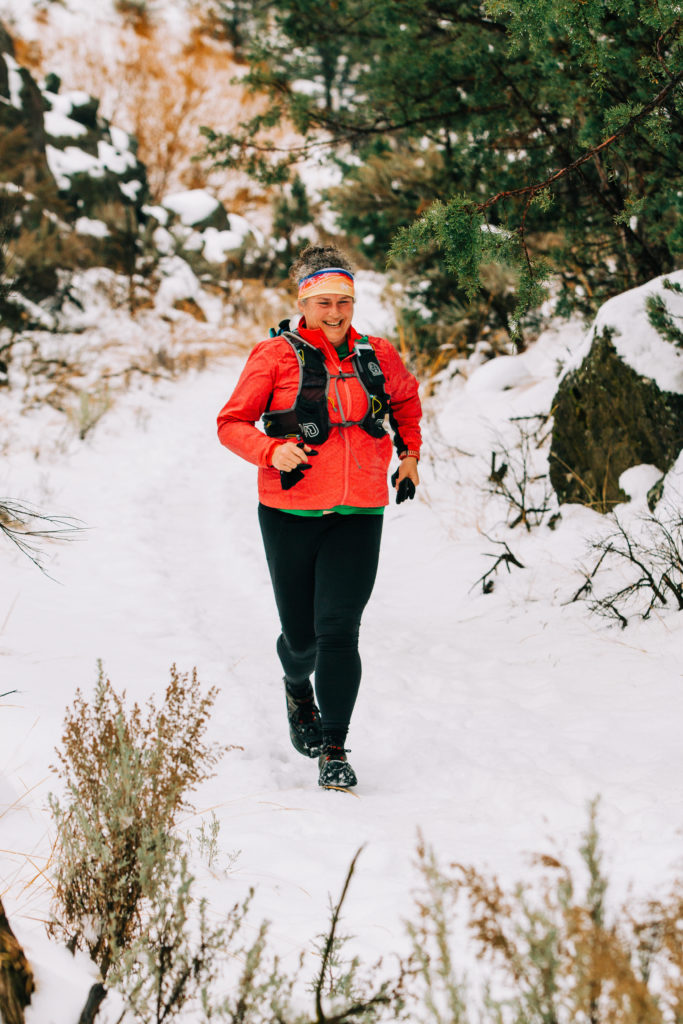
Betsy I wrote about you 3 years ago on our blog about your story of amazing health transformation including reversing diabetes and finishing a 100 mi race. Can you described to us the biggest challenges in maintaining this?
MENOPAUSE. In all caps.:) HAHAHA! I was not ready for the hormonal shitstorm that menopause would unleash in my life. And was not prepared for how it would impact my blood sugar management in sneaky, subtle ways that had a compounding effect. I have also had about 2 years of injury (one running injury, one pretty epic bike wreck) that have perhaps made it all the more challenging. But menopause caught me off guard in regards to glucose control. And I should perhaps be embarrassed to admit that it snuck up on me; but it sure did! The biggest wake up call was finding my hbA1C climbing a little in my annual visit and understanding that what I had done to reverse type 2 was really no longer working in the same ways. Type 2 was trying to creep back into my life. And perhaps now would be a proper hat tip to injury; injuries also limited my activity. Frustrating and mentally taxing to be so physically limited when I know that learning to be active is what helped me reverse this whole mess in the first place. Menopause and injury have been the newest learning curves. It’s taking some vigilance and creativity to continue to keep it at bay. And I’m honestly still figuring out exactly what that new combination is going to be that will work… Work in progress. 🙂
What have you learned to be the go to foods or activities to keep you on track?
Avocado, nuts, protein, non-starchy veggies. They fill me up and have negligible impact on my glucose. I love running; due to injury I’ve re-embraced my love of walking/hiking. My personal health prescription for keeping Type 2 Diabetes at bay and staying off prescription meds? Consistent low carb/healthy fat way of eating, lifting weights and running in that neat little package…
Why do you think most people fail at diets?
That’s an entire book unto itself – and so, so, personal… Food restriction that becomes starvation, stigmas against weight/fat, unrealistic social/personal expectations, unaddressed addiction/mental health issues, a drug-happy medical system, lack of basic understanding about food/nutrition/diseases, slick and super-sexy marketing from the processed food industries, an American Standard Diet that’s seriously whacked… I am running out fingers to point. And I’m probably pissing off just about everyone I could possibly piss off in a single sentence. BUT then again, I’ll point all the fingers I have knowing that our personal health is about our personal responsibility and backing down never got me anywhere worth going. I think people assume willpower will win the day for ‘dieting’ and willpower is actually a very limited entity and is not match for starvations and deprivation. Getting into healthy eating habits takes work; and it’s not work most people are willing to do in a convenience/fast-paced/well-marketed/food-as-social-reward world…. And then I usually have to stop and admit that even for someone motivated and wiling – there is simply a TON of confusing information out there targeting a massive population eager for a simple answers/quick-fixes. Dieting doesn’t work at all, it’s about eating the foods that help your body do what it wants to do…
In your book you talk about battling binge eating disorder. Tell us a bit about this and whether you think it is still highly present.
Binge Eating Disorder (BED). I can look back at 51 years old and see that I experienced episodes of BED as young as 14. I was not officially diagnosed – or willing to confront that this had a name and was a ‘thing’ in my life – until I was 48. It’s present most days. Or I should say – I’m aware that it’s lurking around the corner. For me this eating disorder (ED) is food being used in place of handling my emotions. Like… pretty much any emotion of any intensity I will want to use food to feel better or avoid feeling things. Yes, even the good. All emotions were best handled by eating large amounts of food to not feel what I was feeling. I have a great therapist and some coping tools now that have helped me keep a foothold on 2+ years of recovery from my last acute episode. But that doesn’t mean that I don’t feel like bingeing or I get to slack off working on why I developed this disorder or that I can’t easily be triggered by someone else talking about their own ED/treatment. I am still selective about the situations I put myself in with stress/tension/food. When I talk to others in the ED world they say we’re in ‘active recovery’ — we don’t ever get to entirely ignore that this has the ability, daily, to reassert itself. I’m grateful to be at a point where I can remember clearly what the fear/shame/self-loathing of an acute binge feels like and yet not have to live with those intense feelings daily. I still have to stop almost daily and do the check-in… ‘Bets. Are you really belly-hungry or is something else going on making you think that food might solve whatever’s going on…?’
What advice would you give someone to either identify or to manage binge eating disorder?
To manage? Get a therapist who specializes in ED’s. Period. I would not be in recovery from this with some wonderful tools to help me when it attempts to rear its ugly head if it weren’t for the therapist who has spent hours with me. To Identify an ED? I know this is going to sound trite; but if you have strong and emotional feelings about food or eating situations, use words like good/bad in relation to food, find yourself using food for reward or punishment, have a pattern of self-talk about your body that is NOT NICE or simply suspect you have a problem… Get thee to a therapist and let them help you sort it out. ED’s are nuanced and yet pervasive and there’s help for all of them. We as humans have developed – with the help of the diet culture/marketing/advertisements – all sorts of inappropriate relationships to our food. But to specifically address BED since that’s what you asked? If you’re plotting and planning and eating LARGE amounts of food, hiding it all from start to finish, afraid of getting caught in any portion of that process, feeling shame about your feelings or your actions, feeling vulnerable or out of control around food – reach out and get help. Telling a close friend that I had a problem and needed help was one of the hardest and best things I have ever done. And they immediately helped me get connected to a therapist to get the help I needed.
You have transitioned part of your career into health coaching . Why did you want to do that?
I wanted to be the person I NEEDED when I was starting out. I needed to find gear, and have someone move with me, teach me to read food labels, have practice conversations about asking my doctor for help, have someone at the gym with me in case I got stuck or laughed at. I became a coach to help people specifically like me who have 100+ pounds to lose, most likely have some medical diagnosis that has to be factored in and do NOT know where to start. I love being a coach. And my favorite thing so far is when someone tells me ‘I’ve got this, I don’t know that I need you to help coach me anymore…’ And they take off SOARING into a healthier life – with new tools and skills and way more confidence than when I first met them.
What things do think are wrong or incomplete about the current model of health coaching that you wish to improve?
Not sure I know enough to actually answer this one. I do think my real-life experience is more important than some of the coaching stuff they forced me to learn from a textbook. And we can NOT give diet advice – but we have to learn and spout the SAD to pass the certification. So I just avoid food talk unless it’s precisely about what their docs want them to do…. Passing on this question I guess…..
Your most recent lab work showed a slight rise in her A1c back to prediabetes level does this concern you?
Can I say FUCK YES it concerned me…. Scared me. And I’m not OK with it. Ok maybe we should scratch the ‘F” word. I’ve had a few weeks to calm down a little. It was a wake up call. I am handling it as a warning that is firmly in my hands. I know there are other bio-metrics we can use; but the hbA1c is a marker I have been tracking for over 10 years; so it means the most to me in terms of knowing if I am am not successfully managing the disease and the lifestyle pieces I have direct control over that impact the disease. So I had a gut feeling the number was creeping up and didn’t want to be an ostrich about the whole damn thing and was alarmed when it came back as more like flying-leaping lunge forward. It was a good reminder that you never really get to stop managing this disease once you have it and there a lot of things I can do to help myself…
See Betsy’s recent insightful blog on this topic.
You are also starting to play with a continuous glucose monitor what have you learned from this?
Only becasue you helped me get one. My current primary doc – knowing my history and my concerns said my climbing hbA1c was ‘nothing to worry about’ and that a CGM wasn’t necessary. I’ll be looking for a new primary doc. And thanks to you, I got that CGM and put it on — super easy to do by the way! – and have been absorbing the feedback that this provides me on the daily. Data points that mean something to me, in real-time without sticking my fingers and bleeding everywhere! Without having to conserve strips and only test 1-2 times a day. I can scan the ‘button’ on my arm and have feedback that I’m learning to interpret. I started out thinking this would be a great way to simply see if there were foods in my diet hat shouldn’t be becasue my body has a hard time handling them. Turns out it’s giving me SO MUCH more information. I can see a spike when I’m fasted and running/cycling’swimming and know that’s likely my liver kicking out some glycogen. I was intrigued by the fact that my glucose immediately on waking was in a solid range and within minutes – eating nothing! – of heading out of bed to start the coffee pot my glucose would jump by 20. What the heck?! Turns out it’s a pretty common thing…. I’m also learning to eat more foods that keep that line as steady and low as possible because ‘steady and low’ is where I feel like a million bucks….
note: for more on the Freestyle Libre see a blog I wrote a few months back for the Hypoglycemia Support Foundation
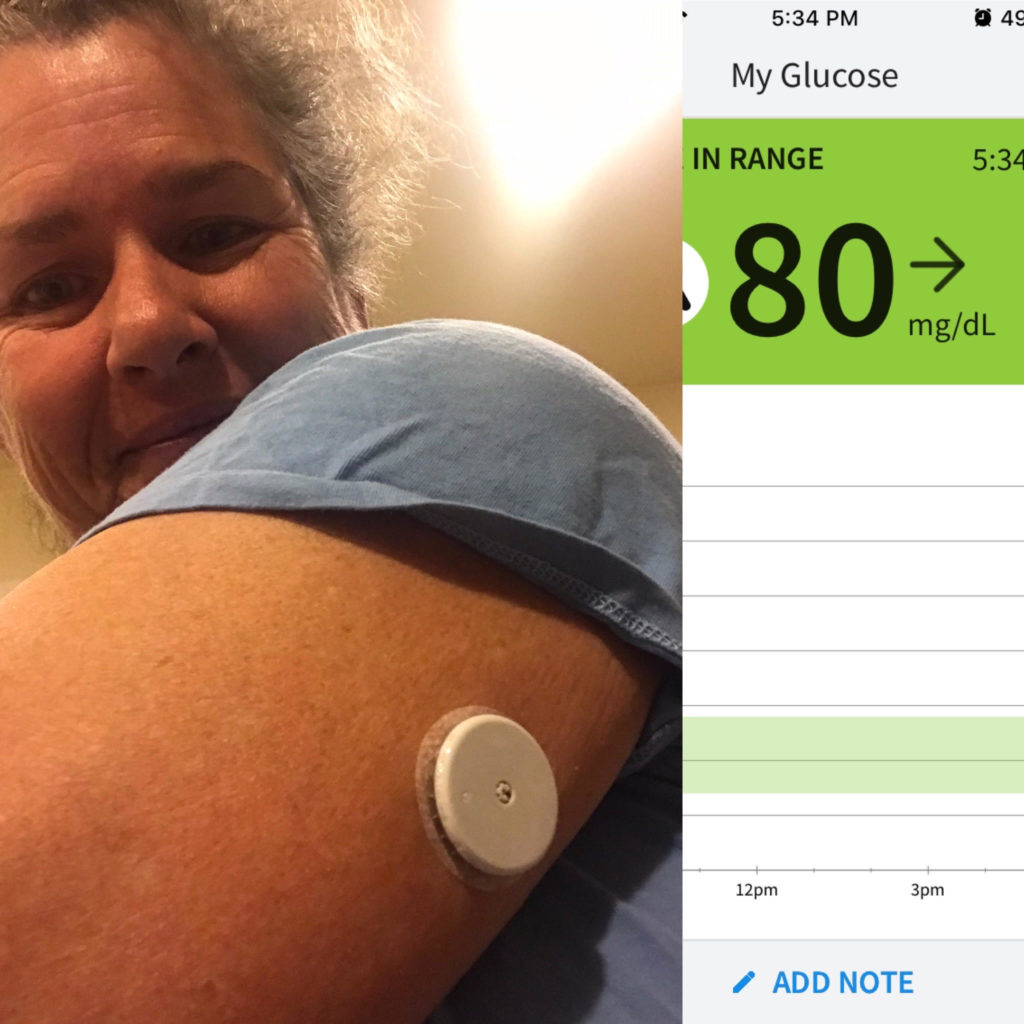
You had a bad injury this summer and were not able to run how did this effect you?
Mountain bike wreck. And I was 3 weeks out from Couer D’Alene half Ironman… Dang it all. The compound break of the collarbone was bad enough – I’m sporting a new plate and 10 screws. BUT the concussion was the WORST. I was going about 18 MPH according to my Garmin and pretty much stopped on a rock, on my head (thankfully had helmet on). I was simply found in the middle of the trail; so we do not know for sure what really happened. I lost about 2 months of memory surrounding the wreck. It limited my activity obviously and severely right off the bat because a) my arm didn’t work and b) I couldn’t remember ANYTHING from moment to moment and c) I was exhausted with the effort of healing from a major wreck. Then as the surgical site healed and I got permission to ease back into physical activity (beyond walking – which I had been doing a TON of since the day after the wreck) I had trouble getting back to ANY kind of routine. I would swim or run a little and then have concussion symptoms creep back in for a day or two or even three… So I spent the entire summer volunteering at races and events I’d planned to be a part of. I would workout as easy as I could and be OK for a few days and then stress at work or pushing a little too hard on a workout or not sleeping well would give me concussion symptoms again. It was so frustrating and I feared ‘normal’ would never return. And there were a few tear-filled breakdowns to close friends that maybe this impaired version of me was the NEW me and I better get OK with it all…. I’m 6 months out from the wreck and still not 100% healed. My memory loss of the accident and my impaired short term memory might be more permanent. Only time will tell – and yes; I’m still working with a concussion PT. (Who are amazing people BTW) I know that in some ways the elevated hbA1c is from not eating as well/moving as much as I normally do, yet in a funny/not-funny way; I can’t really remember what in the hell I was eating or doing well enough to target anything specific. But it forced me to be inactive and quiet and rely on others for help with food/eating – which I don’t do very well or graciously. 🙂
What role does running and the running community play in your continued recovery?
Running allows me to move and breathe hard and gain a sense of accomplishment and see the activity positively impact my blood glucose management efforts. When I was gaining control of my health the first time around running emerged as the thing that caught my soul on fire — the movement, the achievement, the community…. All of it. The trail and ultra community is so supportive. I know the saying is ‘life mimics art’ – but running mimics life and ultra runners get that it’s not IF something will go wrong – it’s when; and what will you do about it. It’s not a out the accident or mess or problem; it’s about your reaction and solution. When I wrecked the bike some of the first folks to reach out with practical help and who showed up to walk slow and steady miles with were the ultra and trail runners in my life. They’ve kicked me out of aid stations and told me to get a grip and keep moving during a race and this time around? They reminded that time was going to be my friend in healing my brain and just ignored or laughed my annoying repetition of topics and found ways to keep me engaged in our running community even when I wasn’t running… I don’t have the adequate words to thank them…
Any running goals for this year?
Running goals? TO RUN AND NOT GET FREAKING INJURED! I do have two key events on the calendar for 2020 that I am SO excited to be training for; Mac Forest 50K in May (Oregon) and Transrockies 6 Day Stage Race in August (Colorado). I want to build back a base of weekly miles and be able to jump in on any distance to pace a friend in their ultra…. I’m not fast. I am a back of the pack athlete to begin with. But hoping to rebuild and get back into some races where I can finish and not be worried about cut=offs. And it felt so danged good to log into my Ultrasignup account a week ago and register for my first ultra in two years…. And it felt even better to be able to start logging some miles and not have any concussion symptoms whatsoever. I’m also being careful to add in more weights/core work as that makes me a stronger runner – and helps keep blood sugars in check too!
bloggers note: we will get Betsy here for Freedoms Run in October or Miner’s Lay Ultra in July 🙂
You came to our medical conference Health Fit U last month did you learn anything new that will help you?
I am not entirely sure how to crystalize what I learned and experienced into a single sentence. It was a powerful experience to be a part of… Being around people who care so deeply about doing good work and helping people get healthy and staying open-minded to the path that it might take was ENERGIZING! I deeply enjoyed being in a learning environment and hearing practitioners and clinicians talking about how they were going to apply what they were learning. Knowing that there is a movement to de-prescribe meds and focus on prevention and lifestyle measures was a huge moment for me. It was something I had basically done on my own – and it was not a popular thing for me to be doing. And to know that there are doctors who want to treat with anything they can, NOT just with meds, was something that I’m sure everyone else in the room knew – but it was new news to me! I left trying to find one of those docs for myself here in Oregon! OH and hat tip to the amazing Laura Bergman for teaching me some kick-ass foam rolling and stretching techniques.
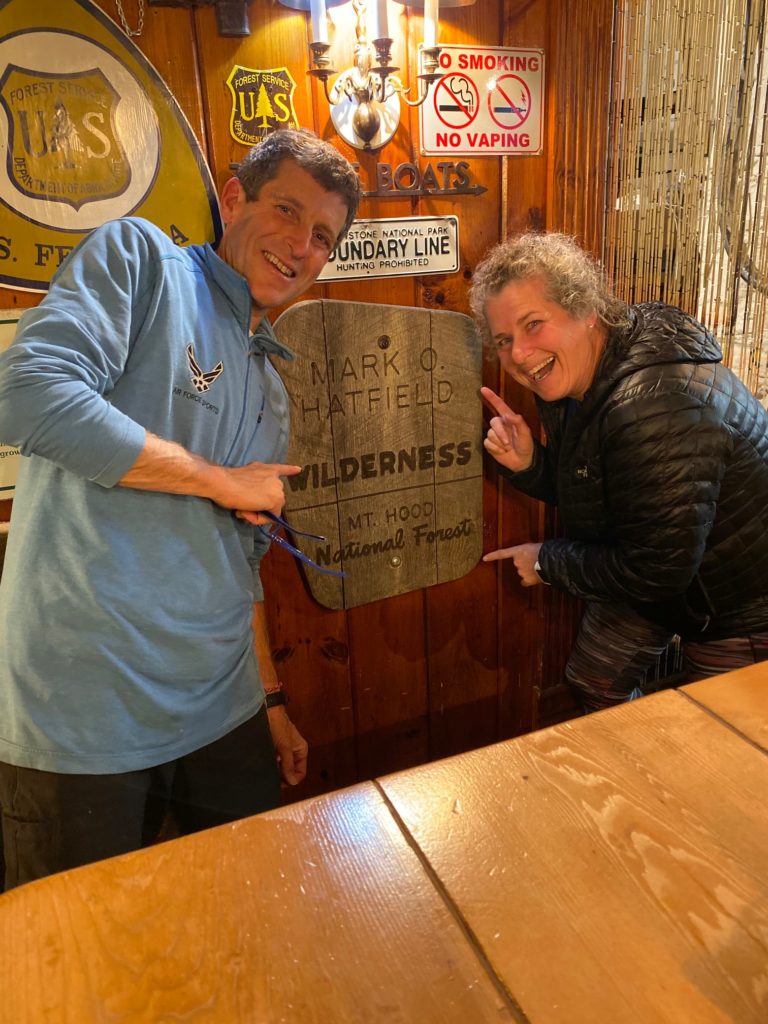
What if any things did our medical conference confirm that your life experience has born out?
That insulin was never a solution for me. Low carb eating was the right answer and solution. And that I had to find what the right balance was on my own; the standards being pushed my way by docs/dietician/health organizations was still too high for me/my body. And this conference was wonderful in connecting me to others who had to ignore conventional wisdom to help themselves get healthy. It was a freaking lonely road 8 years ago when I started aggressively trying to figure out what was going to work and I know now that I wasn’t entirely alone.
Any go to resources you would recommend for people who were trying to start the journey?
Get a doc who will prescribe a continuous Glucose Monitor so you can quickly see with your own eyes what works and what doesn’t. I am re-reading Dr. Jason Fung’s book ‘The Diabetes Code’. He explains pretty clearly what’s happening with your body when you have too much glucose in your blood. I don’t even know how to tell someone to stay away from the crazy/magic-bullet/packaged BS that some spin off as ‘healthy’. There’s just too much voodoo/fake science crap out there playing on peoples fears of the disease and their desire for a quick-fix… If I were starting this journey again knowing what I know now; I would want a CGM, a good Doc and some walking/running friends.
note: go to end of blog for new medical guideline on type 2 Diabetes remission which I helped author
Why did you write All Bets Are Off?
I kept getting asked a whole lot of the same questions about how I got started on my journey to reverse type 2 diabetes. And it was usually followed with ‘you should write this all down in a book’. So I did. 🙂 I wanted to help others. I wanted to talk about the crap that no one really wants to talk about when you weigh 400 pounds and think you are the ONLY one dealing with any of the embarrassing and hard issues that come with size and poor health and no activity and doctors who don’t really know how to help you get started. I also wanted to be able to help the people who were too shy or embarrassed or depressed to reach out and simply ask me their hard questions.
You mentioned at the talk at our store that you do not want you book to be weaponized (do I have that correct). Can you explain that?
I have this horrible fear… I envision someone basically handing my book to someone they know or love and saying something like ‘I think you are fat and because I have no idea how to tell you that you’re fat and you need to do something – here; read this ladies book.’ My story is meant to help people, not hurt them. My story is meant to provide hope and maybe some ideas on how to get out of the awfully big and lonely-ass hole that obese/unhealthy people might find themselves. It’s meant for them to find it because they’re at a stage of wanting to find answers and start a process to gain a handle on their health. Or they are struggling to understand that in some cases type 2 diabetes can in fact be reversed no matter how much the medical community wants to deny or downplay that fact. I don’t need or want people using my story to hurt someone or send a message or provide unsolicited feedback… I fear this; because it’s the hurtful shit that has been done to me time and again. So I know that it’s very much possible and perhaps even likely and I don’t want to be a part of it….
Anything else?
Thank you for being a support and for ALL YOU do for the myriad of people who need your brain, compassion and support. You are a gem. Happy trails to you and yours!
…………..
For the clinicians:
It was a privilege to work with Drs Eric Westman, Will Yancy, and Lydia Bazzano on this concise pocket guideline book titled “Low-Carbohydrate Nutrition Approaches in Patients with Obesity, Prediabetes and Type 2 Diabetes”
This sits on Guideline Central. Like all guidelines many are incorrect, incomplete, and some outright wrong. We know this guideline will be revised, improved, and challenged but I think it holds enough weight to stand up to guidelines from groups such as the AHA and ADA which we as a group often challenge. Its good debate and I’m proud our guideline is included 🙂
https://www.guidelinecentral.com/
Below are a couple links for web and phone versions and even to order the little pocket guide (it comes as a nice bound book).
- Flipbook – http://eguideline.guidelinecentral.com/i/1180534-low-carb-nutritional-approaches-guidelines-advisory/0?
- UK version – http://eguideline.guidelinecentral.com/i/1183584-low-carb-nutrition-queens-units/0?
- Direct Web Link – https://www.guidelinecentral.com/share/pocketcard/5dadda48dd342/
- Link to Claim for Web/Mobile– https://www.guidelinecentral.com/shop/low-carbohydrate-nutrition-approaches-patients-obesity-prediabetes-type-2-diabetes/
Thanks Will, Eric, Lydia , and the team at Guideline Central for giving us this opportunity
Share this with colleagues as part of efforts to educate on this option.


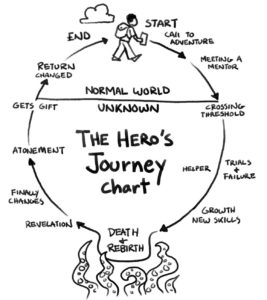
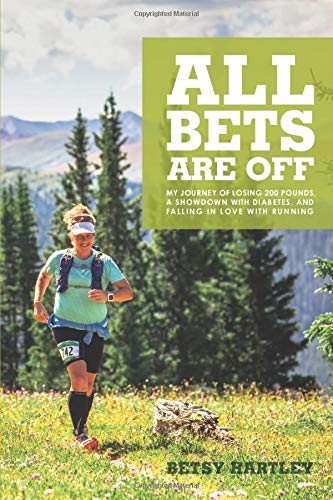
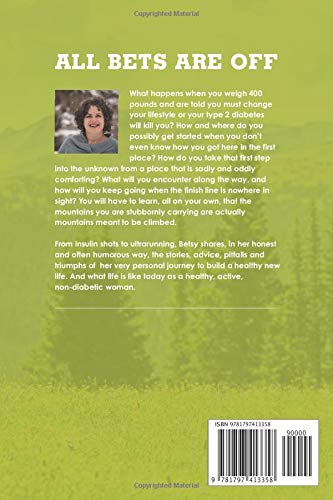
What are your thoughts on Dr Fung’s work on Fasting and his take on foods including Low Carbohydrate, moderate Protein, unhindered healthy days?
Sean i love his work . People need to read The Obesity Code and The Diabetes Code